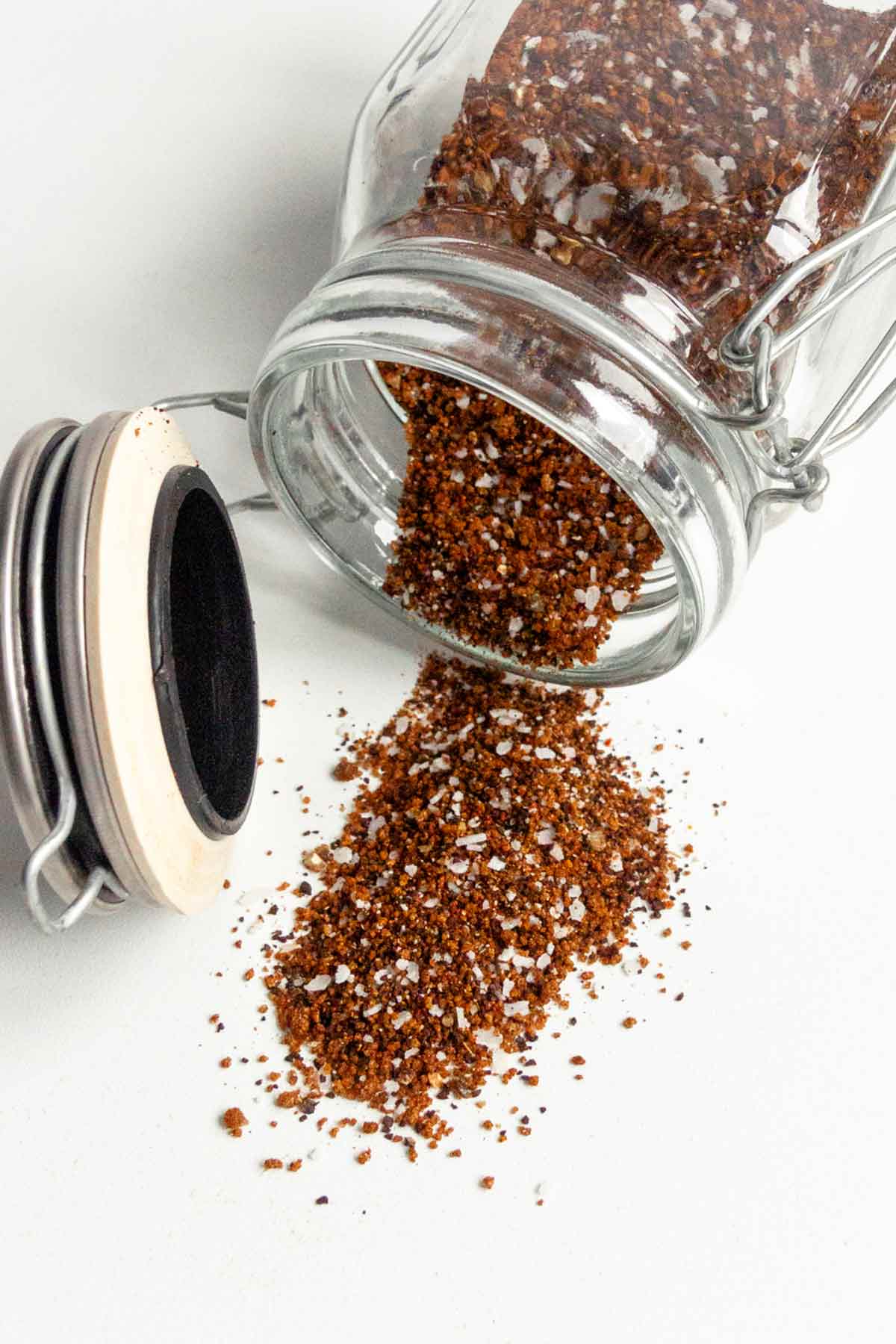
Want to save this?
At Fette Sau, they use this dry rub recipe on “just about everything that we smoke,” according to guys at the restaurant. Which explains why this dry rub recipe yields such an ample amount.
We’re talking lotsa dry rub. As in enough dry rub to see you through the rest of the summer and well into tailgating season. Okay, maybe not quite that long, seeing as you’re going to want to slather this rub all over everything you smoke or grill, whether pork shoulder (aka pork butt), chicken, steak, salmon, oh heck, we’re just going to stop listing items because this will literally go with everything.
Go on. Give it a try. And you needn’t follow the recipe exactly. Feel free to improvise on the ingredients and amounts, reducing the sugar for a less-sweet or increasing the cayenne for a spicier one or so on.

Why Our Testers Loved This
Our testers loved the versatility of this bbq rub, which can be used on a variety of meats. They also loved that it makes a big batch, keeps well, and only takes a few minutes to toss together.
After trying many store-bought blends, Anne Anthony declared, “nothing, may I repeat, nothing comes close to the savory flavor of this rub.”
Notes on ingredients
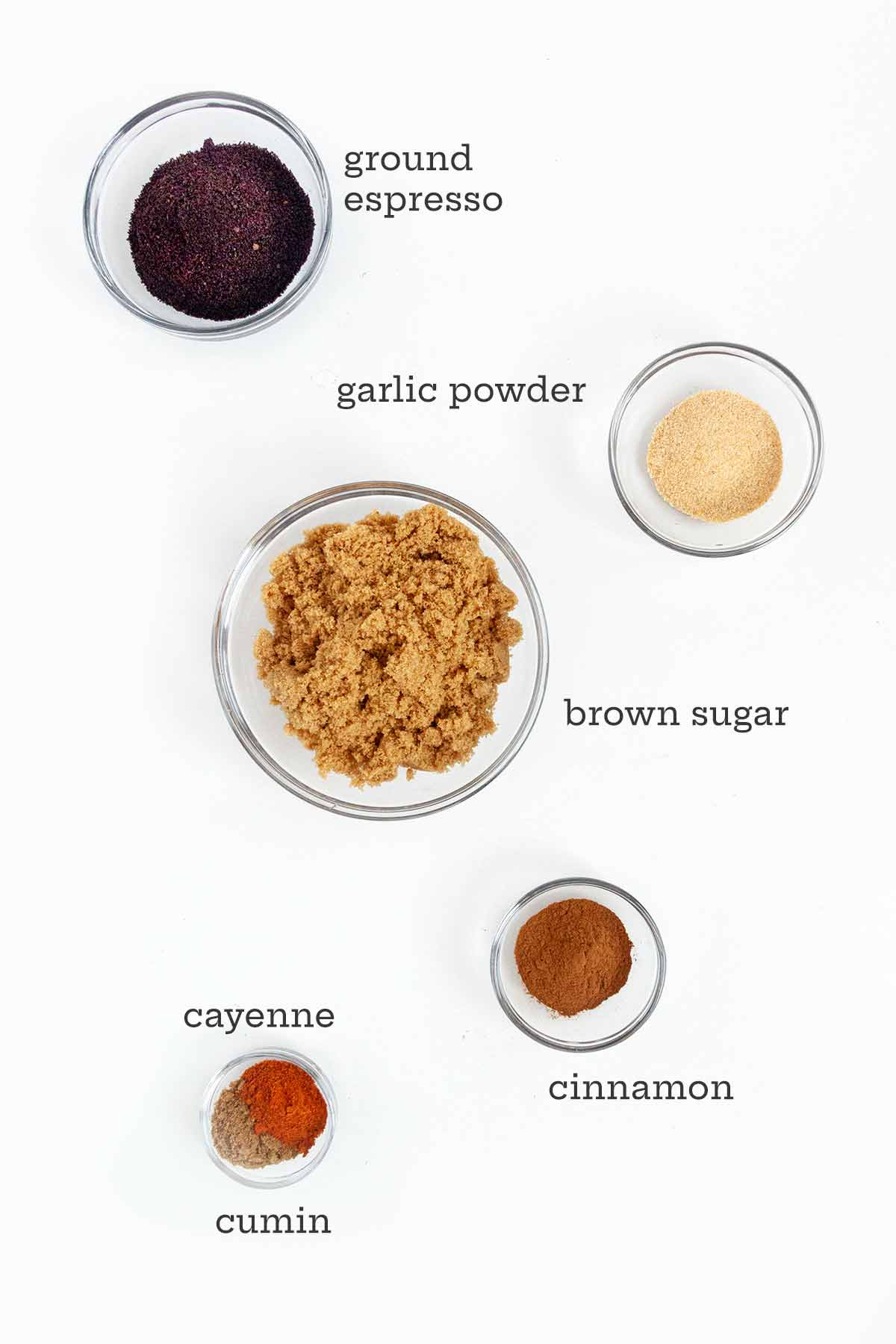
- Brown sugar–This adds sweetness to the rub and will also promote the browning and caramelization of your meat during cooking. If you prefer a less sweet rub, you can decrease the amount of brown sugar.
- Ground espresso–You can substitute regular ground coffee if you prefer a milder coffee flavor.
- Cayenne–This contributes heat to the rub. If you’re not a spice fan or would prefer a milder rub, feel free to reduce the amount of cayenne.
Step-by-step instructions
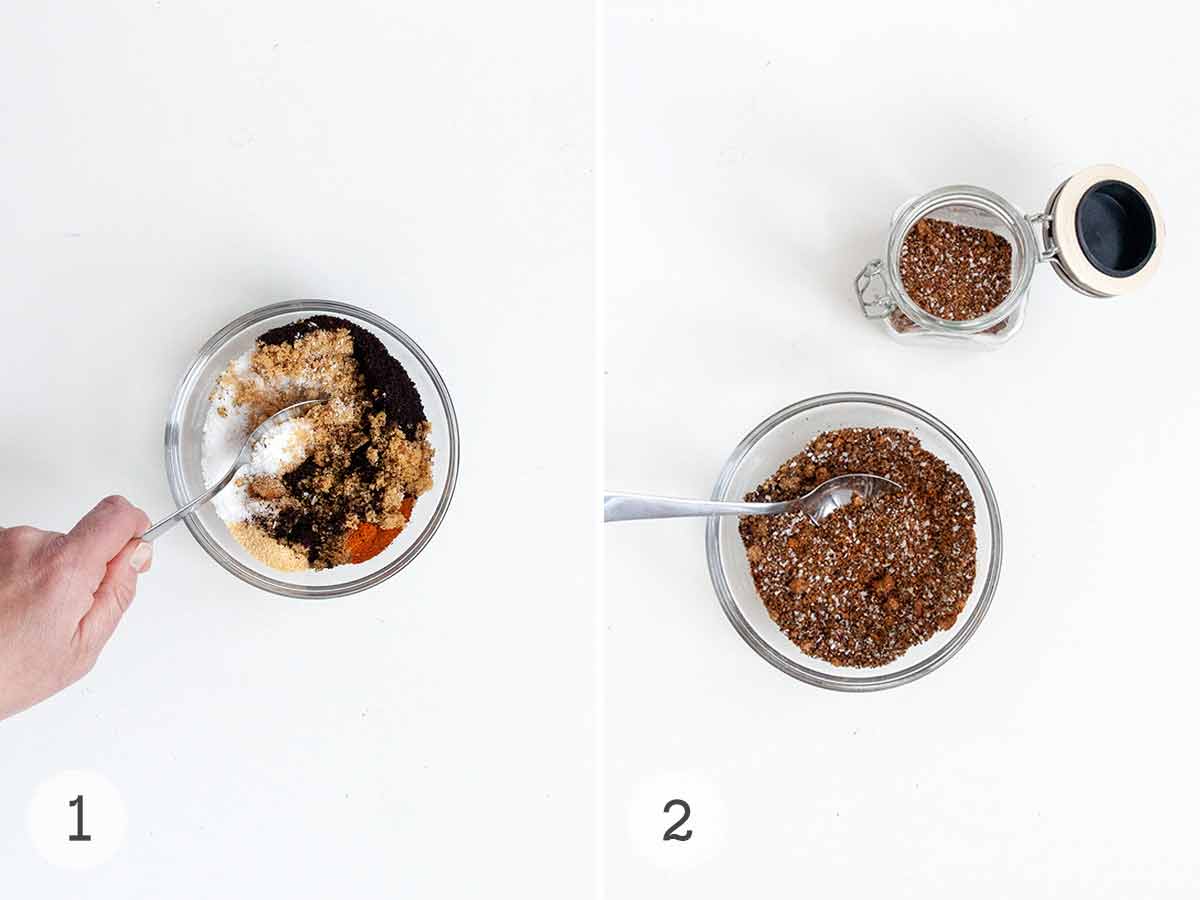
- Combine the ingredients in a medium bowl and mix well.
- Transfer to an airtight container and store in a cool, dry place.
Common Questions
Yes. To extend the life of the blend, store it in an airtight container in the freezer for up to 6 months.
This barbecue spice rub is incredibly versatile and can be used as your go-to BBQ dry rub. Smear it onto smoked chicken, spare ribs, or steaks before grilling or smoking. It also makes a great seasoning to add to homemade breakfast sausage or hot smoked salmon.
When sugar-based rubs are cooked over high temperatures, they can burn. To avoid this, cook your food slowly over low heat. This barbecue rub works very well for smoking food, which is usually done with a low-and-slow cooking method.
Pro tips & troubleshooting
- Store the rub in an airtight container at room temperature for up to 2 months.
- The BBQ dry rub recipe can easily be scaled up or down, depending on how frequently you use it.
- If the rub begins to harden or clump during storage, toss it into a food processor and give it a quick blitz.
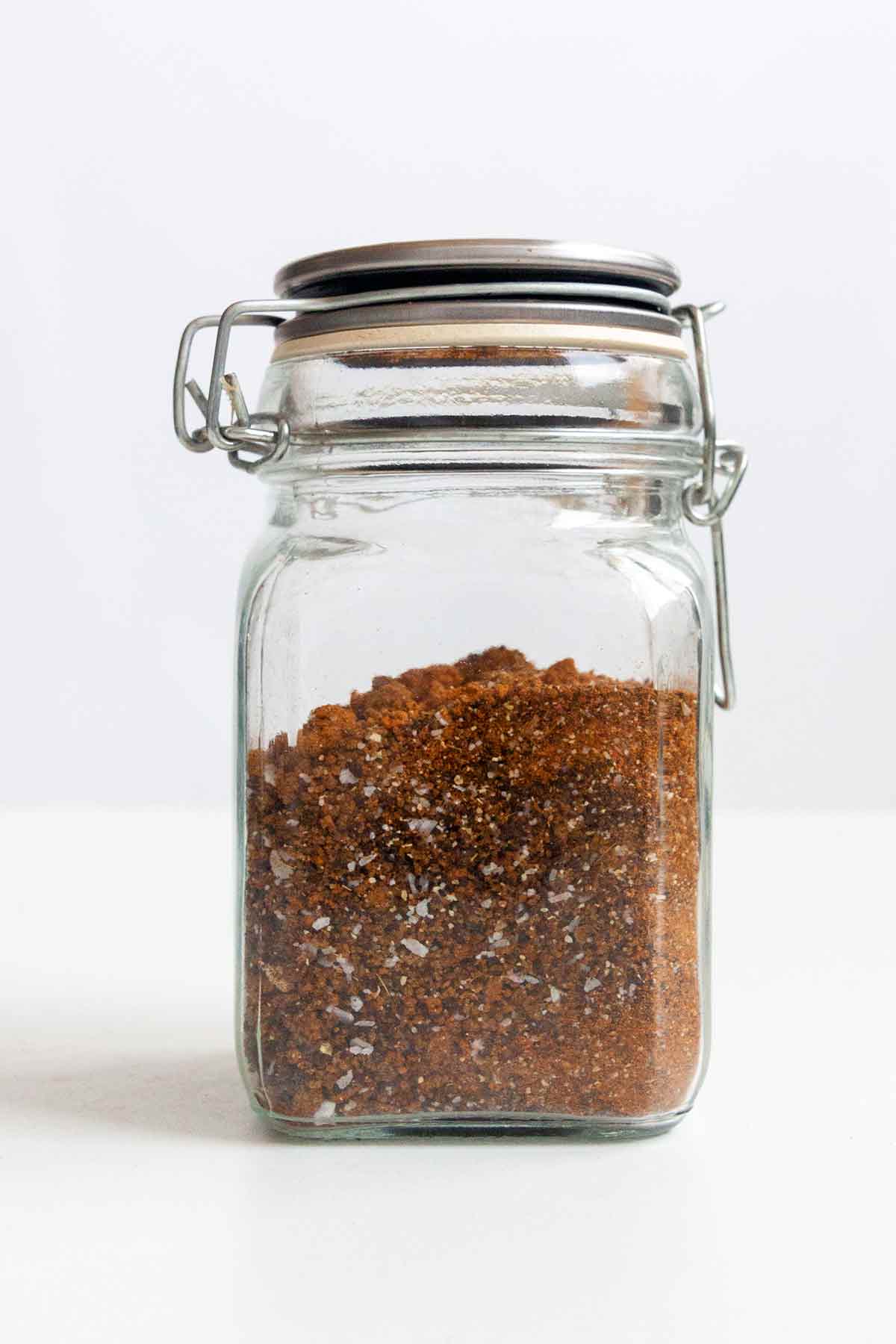
Write a Review
If you make this recipe, or any dish on LC, consider leaving a review, a star rating, and your best photo in the comments below. I love hearing from you.–David
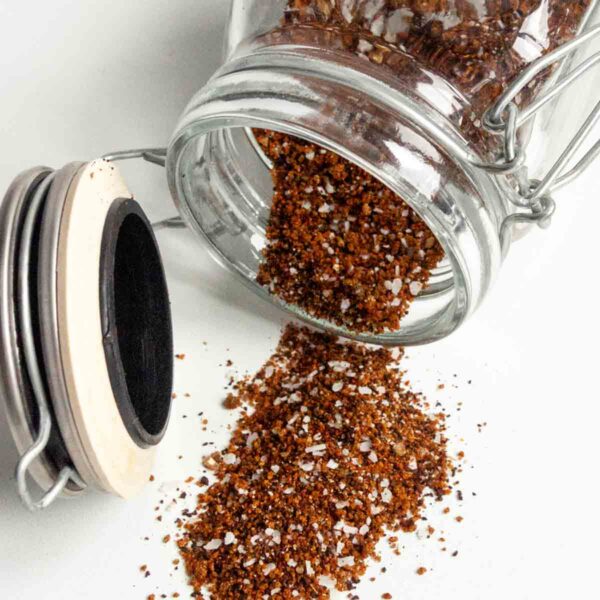
BBQ Dry Rub
Ingredients
- 3/4 cup packed dark brown sugar
- 1/2 cup kosher salt
- 1/2 cup ground espresso beans
- 2 tablespoons freshly ground black pepper
- 2 tablespoons garlic powder
- 1 tablespoon ground cinnamon
- 1 tablespoon ground cumin
- 1 tablespoon cayenne pepper
Instructions
- Combine the sugar, salt, espresso beans, pepper, garlic powder, cinnamon, cumin, and cayenne in a resealable container, cover tightly, and shake well to combine. Store in a cool, dry place.
Notes
- Storage–Store the rub in an airtight container at room temperature for up to 2 months or freeze for up to 6 months.
- Scaling–The BBQ dry rub recipe can be scaled up or down easily, depending on how frequently you use it.
- Breaking it up–If the rub begins to harden or clump during storage, toss it into a food processor and give it a quick blitz.
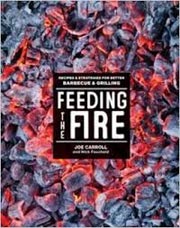
Explore More with AI
Nutrition
Nutrition information is automatically calculated, so should only be used as an approximation.
Recipe Testers’ Reviews
Did you know only 68% of the recipes we test make it onto the site? This recipe survived our rigorous blind testing process by multiple home cooks. It earned the Leite’s Culinaria stamp of approval—and the testers’ reviews below prove it.
I love a good dry rub, especially a good coffee dry rub, and this one certainly fits the bill. This dry rub takes just a few minutes to make and whips up quite a bit. If you smoke poultry and pork often, go ahead and mix the entire batch. You’ll be glad you did.
I used a medium Guatemalan Antigua bean with a fine expresso grind. I was thrilled with the results when I used this on a whole chicken. This rub imbues a rich, sweet, and salty flavor and adds depth from the coffee beans’ nuttiness.
I was so enamored with this rub that just a couple of days later, I cut a few 2-inch pork loin chops and brined them with a cup of rub in a quart of cold water in a gallon-size resealable plastic baggie for 2 hours.
This dry rub is definitely a keeper. I used it as a brine on chicken and also as a rub on pork chops. I actually liked it more as a pork-chop rub than a chicken brine, but the brine was really flavorful.
Smoking slowly over low heat ensures that the cinnamon and coffee don’t take on an acrid flavor.
My husband prepared this rub to use with the smoked chicken recipe and then the following week for grilled bone-in pork chops. I had a hard time deciding which of the two I enjoyed more.
He’s prepared other grilled dishes using store-bought, coffee-based rubs, and nothing, may I repeat, nothing comes close to the savory flavor of this rub.
Named after the Brooklyn restaurant, Fette Sau, the German phrase literally translates into English to “Fat Pig,” a perfect title because I could not stop devouring it, and yes, I may have even licked a finger or two.
If you’re smart, double the recipe so you can try it with different dishes. Salmon is next up on our list. Enjoy.
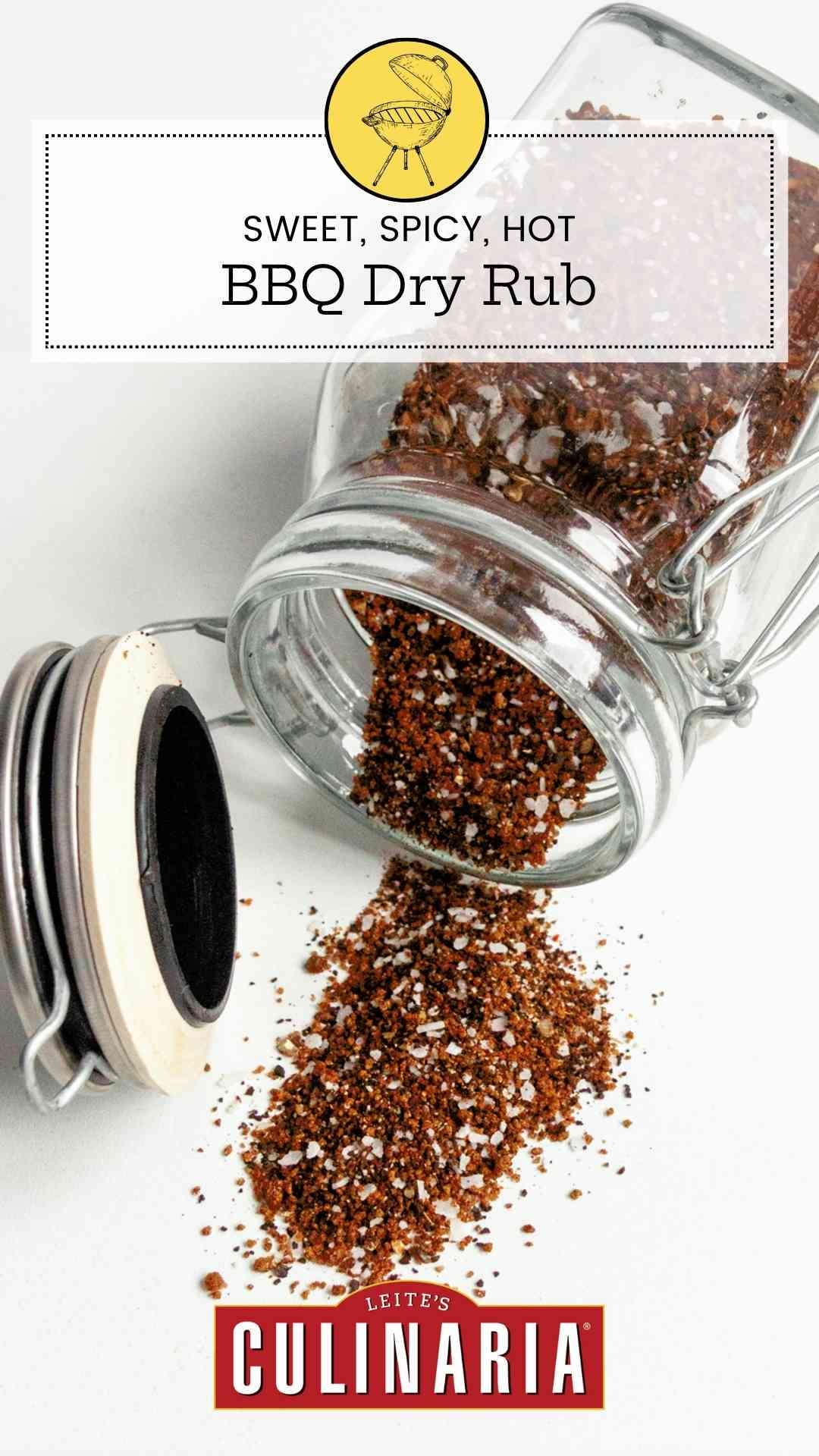
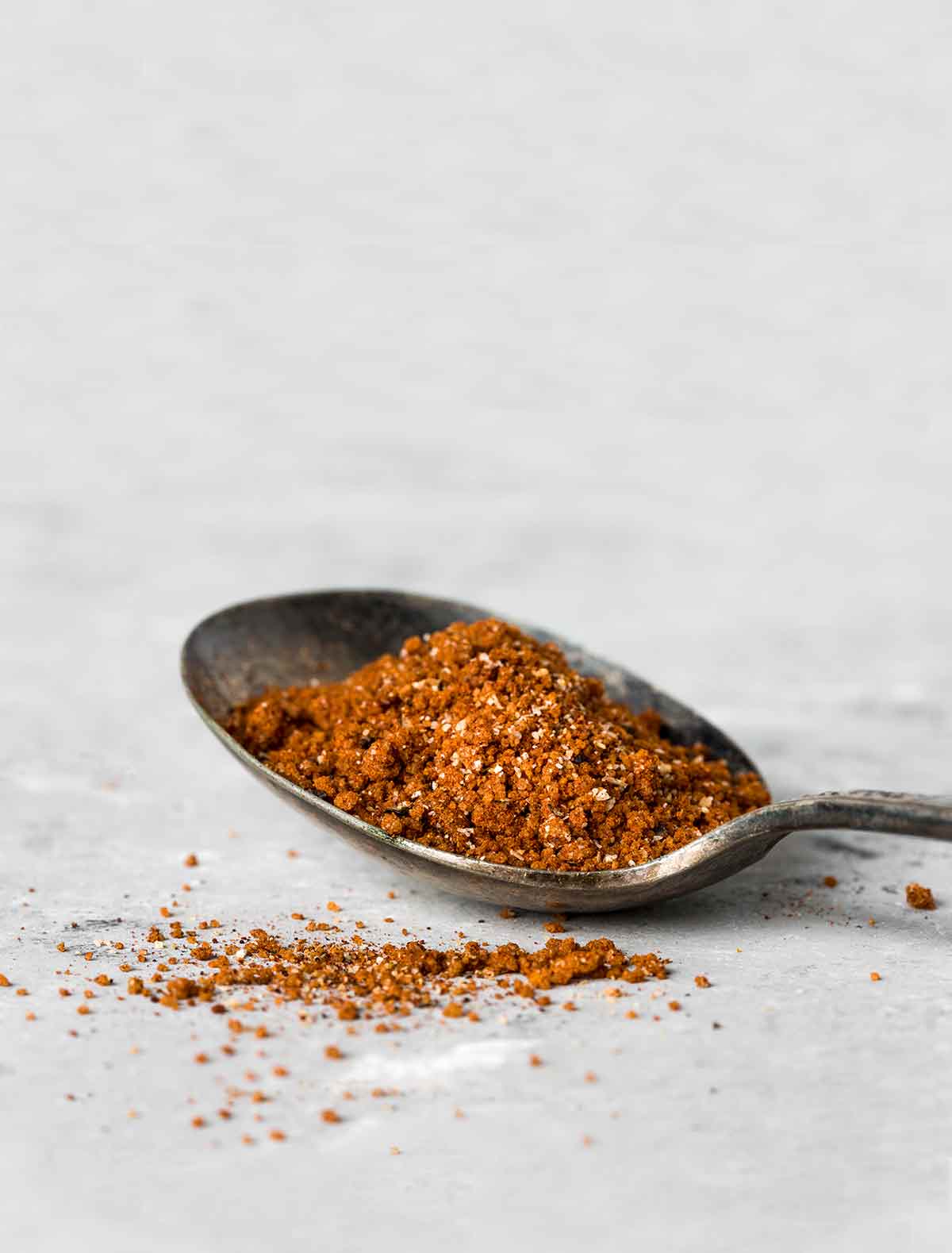
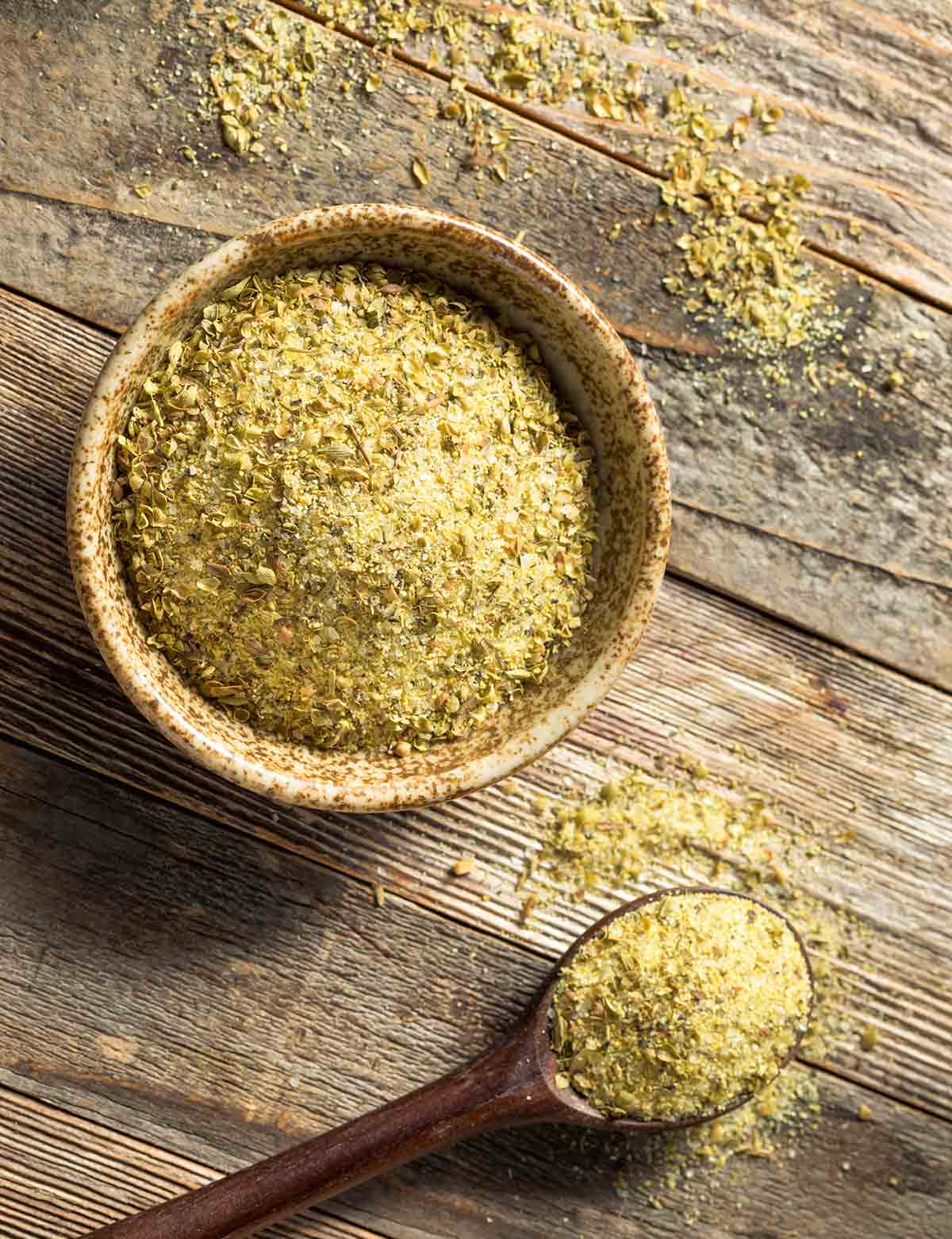












This is going to be my 1st try. I’ll let you know when I’m done
Great, Keith. We can’t wait to hear how it turns out.
Brown sugar, espresso, cinnamon, straight from the smoker—what’s not to like? I brined a chicken and rubbed a small roast, prepped the Kettle Smokenator accessory parts (Kingsford charcoal to start and pecan chunks for smoke), loaded the meat on the rotisserie, and stood back. Grey smoke leaked from the black dome, full of promise. Would I get succulent, subtly flavored meat or merely a mash-up of competing flavors and tough, stringy meat?
The envelope, please. Top billing goes to . . . the roast beef! And not straight from the Weber to the plate, either. The lurker here is the roast beef cooled, although not cold, in a salad with arugula, tomatoes, two drops un-pedigreed olive oil and one drop Trader Joe’s balsamic vinegar. The chicken was also good in a salad. The answer lies in the balance of flavors and the end use of the smoked meat.
Would I do this again? Yes, and I’d like to try it on a pork roast.
Wow, MD, that sounds amazing. My mouth is watering just reading this! Do let us know how it turns out with a pork roast.
Mike… Is this you and Wanda??? Cindy G here in Florida. Jay made this and it was fab!!!